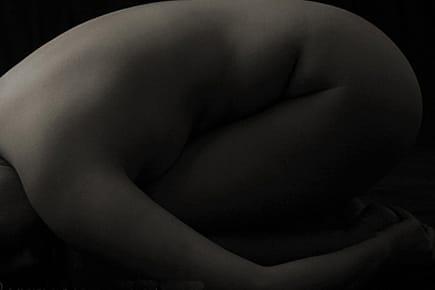No Sex Please, We’re Pakistani

The Newsline sex survey, titled 'Sex and the Pakistani Woman', might lead some readers to believe it may be about sex and the Pakistani woman. It isn't.
The Newsline sex survey, titled 'Sex and the Pakistani Woman', might lead some readers to believe it may be about sex and the Pakistani woman. It isn't.
A popular Pakistani monthly magazine features as its latest cover the silhouette of a woman in shalwar kameez on a backdrop of bold red lettering spelling out "Rape", "Abuse", "Shame" and "Embarrassment", like Andrea Dworkin-themed fridge magnets. Hot on the heels of the India Today sex survey, it is salaciously called 'Sex and the Pakistani Woman', leading some readers to believe that it may be about sex and the Pakistani woman. It isn't. Oh dear God, I hope it isn't.
The piece begins promisingly enough—the setting is a swish private party where a clutch of women is gleefully dissecting their friends' failing marriages. So far, so true. The scene then cuts to a middle class home where a terrified girl is experiencing her first period with no prior knowledge of the phenomenon. The last tableau is a slum, where a child is wondering why her father is hurting her mother and why her mother appears to be enjoying it. We are didactically informed, like idiot children, that the three sets of women portrayed hail from vastly different worlds, yet share a commonality. It is, and I'd never in a million years have guessed it, "the one taboo topic of conversation—sex and women".
Openomics 2026: Continuity and Conviction
06 Feb 2026 - Vol 04 | Issue 57
The performance state at its peak
The next sixteen or so pages display an acutely well-developed disregard for the difference between sex and women's rights. It's account after account of domestic violence, honour killing, sexual harassment at the workplace and rape. Not that these things don't happen here, and on a repulsively large scale too, just that, sex as a topic can now be bundled into sixteen doleful pages from which any mention of the word 'pleasure' is conspicuously absent.
Other than a mountain of anecdotal evidence to the contrary, the article's insistence that nobody discusses sex in Pakistan is somewhat undermined by some of the bawdiest representations of the act found in literature, both highbrow and lowbrow. It is found in the most gratifyingly lewd songs performed at women-only mehndis. It is undermined by conversations overheard at any spot where two or more women are gathered. Most offensive is the suggestion that those people with satisfying sex lives, i.e., whose husband's favourite position isn't beating them to a pulp, enjoy this privilege because of their exposure to modernity. Philip Larkin would have been tickled pink, someone finally taking Annus Mirabilis in deathly earnest, "Sexual intercourse began/ In nineteen sixty-three… Between the end of the Chatterley ban/ And the Beatles' first LP".
As for the contention that the elite (that sordid, bless 'em, cabal of degenerates who'd turn Bret Easton Ellis's hair white?) are unwilling to discuss sex, oh, I wish. Worst of all was the few paragraphs of apologetic, embarrassed guff about how sex (meaning in this instance intercourse and not wife-beating) is a 'spiritual expression'. Could Sufis please just stick to making music?
As for solutions to the current state of women's rights, the options offered are somewhat optimistic at best. Women can allegedly "reclaim their power" through knowledge of their sexual rights, the right to say 'no' etc. I'd have thought women knowing that they have the right to say 'no' without the backing of any economic independence or social standing, with no power and no options, would be about as useful as a familiarity with the Geneva Convention in Gaza. Still, this piece reads like the Kinsey report as compared to another piece I stumbled upon recently, culled from an international publication of some repute (hitherto, at any rate), a blog entitled, "Let's talk about sex baby, let's talk about sex in Pakistan".
It's not an article so much as a minefield of dangerously inaccurate pseudo-anthropology. The swashbuckling opening, "I'm a red-blooded woman' is followed by an example of the writer's sharp data-collecting methodology, "I'm accustomed to asking people "Are you a virgin?" The writer, with her "American aggressiveness", finds herself a trailblazer in a population curiously devoid of sexual openness, knowledge or really even curiosity. And speaking of America, the people who invented sex, no piece on Pakistan's sexual mores is complete without that tried and tested load of old cobblers, "Pakistan has become more Western in a lot of areas, but clearly not in this one." Still, even in this festering morass of misinformation, one line stands out as a clear winner. She declares: "Here there is no flirting." The "with me" at the end of that sentence remains tragically unspoken.
